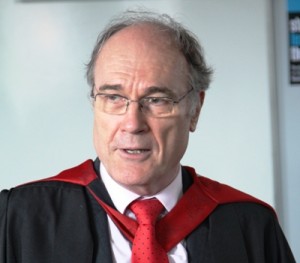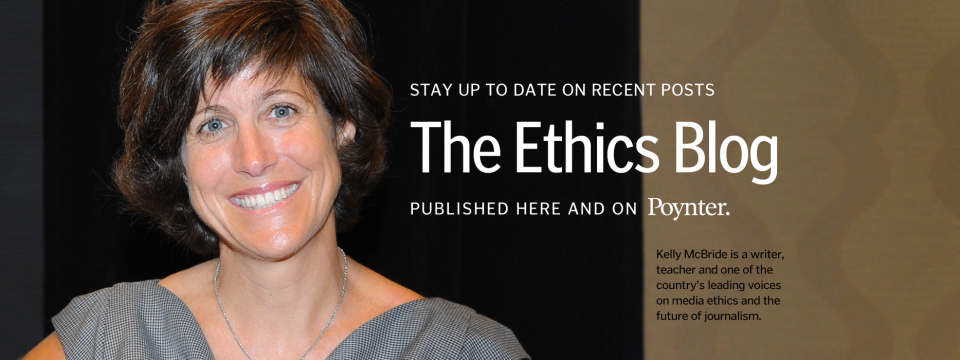 |
| Kurt Eichenwald (source) |
In Part I, I reported about a dust-up between Eichenwald, who lives in Dallas, and the Philadelphia-based American Board of Internal Medicine (ABIM), which, according to the organization's website, certifies "more than 200,000" physicians.
In a March 10 Newsweek item, Eichenwald raked ABIM over the coals, claiming the organization charged member physicians excessive fees to take re-certification tests, required diplomates to shell out big bucks to attend conferences as a re-certification requirement, and padded tests with irrelevant information, making them more difficult to pass.
The result, according to Eichenwald, has been a significant increase in the number of doctors who flunked the test and were left uncertified by ABIM, a big deal for doctors trying to make a living.
Apparently he landed a direct hit, because ABIM's chair fired back with a next-day media statement that claimed Eichenwald's article contained "numerous and serious misstatements, selective omissions, inaccurate information and erroneous reporting."
Here's the part that caught my eye.
Finally, the author failed to disclose that his wife is an internist.What the statement didn't say was whether his wife, Theresa F. Eichenwald MD, had ever been certified by ABIM and, if so, when?
Per my previous item, when I tried to find out, no one would talk.
The only information I could find was that, according to ABIM's website, Dr. Eichenwald was first certified by ABIM in 1993, but is no longer a diplomate. And according to the Texas Medical Board, in 2003 she informed that agency she was an ABIM diplomate.
So when was she last certified by ABIM and why is she no longer an ABIM diplomate? Is she certified by another board?
When I e-mailed Eichenwald and politely asked for details -- the first time I've ever communicated with the guy -- he went ballistic, throwing baseless, dumb insults at me.
I then politely asked Newsweek Editor-In-Chief Jim Opoco if he'd ask Eichenwald and let me know the results.
He promptly replied:
We disagree with your concept of what constitutes a conflict in journalism. I urge you to read some of the voluminous handbooks that exist on journalistic ethics rules regarding the definitions of a conflict.Ahem.
I never suggested there was a conflict. I was simply trying to obtain facts to evaluate whether or not there might be a disclosure issue.
If so, it wouldn't be the first time. As widely reported, Eichenwald got into hot water over a 2005 front-page New York Times story he wrote about child porn.
 |
| Kurt Eichenwald and Justin Berry (source) |
Eichenwald's reporting stemmed from his efforts to aid Justin Berry, who was both a victim and perpetrator of a Web pornography ring, and who was in league with several older men.Folkenflik also reported:
...(Revelations) have surfaced that have raised more profound questions about Eichenwald's own actions. Most notable was his failure to inform editors at the Times that he and his wife had made a series of payments worth at least $3,100 to Berry and his business partners.
In a story airing Friday on NPR's All Things Considered, Eichenwald reveals a secret that he had carefully guarded for more than two decades: His epilepsy had triggered so many and such severe seizures that, according to his neurologist, he suffers from "significant memory disruptions."That condition must be a serious challenge, so Eichenwald can surely be commended for continuing to produce deeply-reported, high-profile journalism.
In any event, since I have no expertise in journalism ethics, I welcomed Impoco's advice and contacted three prominent expert authors for comment.
In order to avoid coloring their perceptions, I provided them with an accurate general description of the situation and left out all names and identifiers.
 |
| Gene Foreman (source) |
Journalists should be willing, even eager, to disclose any relationship that might possibly reflect on their perceived impartiality. In the case you described, the writer should disclose his wife's status. I see that as a minimum.
Disclosures are ethically a positive step but not always sufficient. Disclosures are appropriate for cases in which a perceived conflict is unavoidable or insignificant. In the situation we're discussing, a reader who has been made aware of the writer's relationship might still doubt that the story has been impartially reported and written.
As a managing editor for 33 years, I preferred that such a story be done by a reporter who has no personal connection to any person or organization being covered. To be clear: I wanted staff members to bring us news tips that they picked up through personal connections. However, the tip would then be independently evaluated and, if a story is assigned, it would be independently reported.
 |
| Chris Frost (source) |
Next up is Chris Frost, Professor of Journalism at Screen School and John Moores University, both in Liverpool, England, and the author of several books about journalism ethics:
Clearly the journalist has the right to write about this accreditation body and, provided the evidence used for the critique stands up, at least to the extent of requiring a response, also has a duty to write about it as it is clearly a matter about which the public has a right to be informed. We then move on to the more subtle point and the focus of your question. How much of a part did the journalist’s spouse play in motivating the story or providing information and evidence?
My view is that journalists should always be as transparent as possible about sources in order to maximise trust amongst readers with regard to the evidence and its sources. When the journalist writing a story is directly involved, being clear about that does not mean the story may not be true, but it is important to inform readers of that so that they may rely more on evidence from external sources rather than believing the journalist has entirely limited subjective involvement.
Things get more complicated when journalists use sources that require confidentiality. Often stories are gathered and published using evidence from sources who would face considerable detriment if their involvement was known. It is not unusual to offer such sources confidential protection. That is the journalist would use the information they provide but would keep that sources involvement secret. Usually this would involve simply using phrases such as “sources within the company…” or “sources with inside information…”. Confidential sources should always be kept to a minimum and journalists should give as much information about them as possible without compromising their safety in order to allow readers to reach their own judgement about their reliability.
That becomes even harder when the source is a close family member. Journalists, just like everyone else, have a duty to protect their families but when family members give them inside information that is very unlikely to become public knowledge without that insider view they may also feel they have a duty to publicise a story that only someone in a similar circumstance is likely to be able to access. They are then obliged to treat that source as a confidential source and might be much more limited in what they write about the source. Of course, without reading the story it is impossible to judge the extent of the spouse’s involvement in the story. I have for instance written stories myself in the past that were triggered by my wife’s knowledge from her profession or personal interests but I have not needed to mention her as all the research for the articles was gathered from other sources. Her involvement was simply in tipping me off the existence of the issue.
If it were to turn out that the article was driven by the fact that the spouse was not re-accredited and was driven by a desire for revenge, then yes, we would need to know the connection. However if sources from elsewhere are used and the evidence is strong, the spouse’s profession might be purely coincidental or at least incidental to the story.
 |
| Kelly McBride (source) |
Finally, this from Kelly McBride, Vice President of Academic Programs at the Poynter Institute and co-editor, along with Tom Rosenstiel, of the book, The New Ethics of Journalism: Principles for the 21st Century
Since my previous inquiry was something of a blindfold test, I'll send this item to the three experts in the event that they wish to comment further.In general, conflicts of interest should always be disclosed so the audience can decide. On top of that, news organizations have an obligation to mitigate conflicts of interest, by adding layers of editing, finding alternate reporters or adding reporting bandwidth to the story.Because I don't know the specifics here, I can't really say what this newsroom should have done. I also can't say whether or to what degree the conflict created an ethical issue with story, without knowing the details.It could be a big deal, or a little deal. It's hard to say.
An eagle eyed journalist alerted me to this goof in a previous version of my item: "The result, according to Eichenwald, has been a significant drop in the number of doctors who flunked the test." Should have been "a significant increase," of course. I regret the error, have fixed it, and am grateful for the eagle eye.